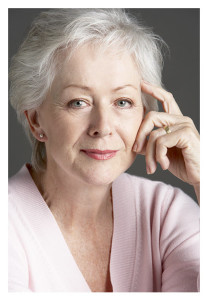A few days back, I got into a contentious conversation with an acquaintance over the concept of “meaningful work.” I suggested, quite innocently, that meaningful work is a luxury for many of us. That was the start of an argument as the other party became defensive, changed the topic, and we then said our goodbyes.
 The disconnect between us may have been brief, but the subject stuck with me — especially since so many articles on the web address the importance of meaningful work to our well-being, and the growing number of people who seek it.
The disconnect between us may have been brief, but the subject stuck with me — especially since so many articles on the web address the importance of meaningful work to our well-being, and the growing number of people who seek it.
Moreover, the desire for meaningful work is not age-specific, though skills, geography, market factors, family responsibilities, and financial needs are always drivers in the work we chase — paid and unpaid.
I think about my own experience — years of being productive but not creative; years adding to a corporate bottom line without feeling that my work “mattered,” the delight I took when I began to make in-roads in using my knowledge and skills on projects that served communities I care deeply about — education and the arts.
But those projects paid so poorly they didn’t afford me an adequate living, thus they were supplemental rather than primary. Importantly, I had a family to feed and bills to pay; “meaning” took a back seat.
Happiness? Make Room for Meaning
Over the past eight years, I have found meaning in writing online on topics I believe are important to discuss. Meaning offers personal satisfaction, a sense of value; these are not the same as happiness.
This article on the importance of meaningful work recognizes an important distinction on meaning versus happiness:
… research suggests that happiness — as the be-all and end-all — isn’t the only ingredient to a life well-lived… some researchers are cautioning against the pursuit of mere happiness and advocating for the pursuit of its closest cousin: meaning.
In the context of work, citing a survey of more than 12,000 employees across industries, the article points out:
… employees who derive meaning from their work are more than three times as likely to stay with their organizations… meaning trumps items related to learning and growth, connection to a company’s mission, and even work-life balance.
“Meaning” Matters to a Growing 55+ Segment
Think about the work you’ve pursued in your life — paid or unpaid — from office to factory to community center to parenting. Meaning matters, doesn’t it? And isn’t meaning derived from giving, from knowing the value and positive impact of your contributions on something “greater” than yourself?
 So what about the importance of meaningful work as we grow older, even if voluntary or low paying, if we can set aside the issues of money? Isn’t this a key ingredient in the recipe of successful aging? As life expectancy lengthens and the 55+ age demographic continues to expand, don’t we seek something “more?” And does meaning, however you find it, stand up to the sensation of invisibility as we age?
So what about the importance of meaningful work as we grow older, even if voluntary or low paying, if we can set aside the issues of money? Isn’t this a key ingredient in the recipe of successful aging? As life expectancy lengthens and the 55+ age demographic continues to expand, don’t we seek something “more?” And does meaning, however you find it, stand up to the sensation of invisibility as we age?
The issue of no pay-low pay is a significant “if” for many of us, and was precisely the point of contention in my conversational dust-up. Nevertheless, the pursuit of meaning appears to be a real concern in light of this: our health.
So says this article in The Atlantic on the role of meaningful contributions as we age.
… many of the ills associated with aging were worsened—or even created—by the lack of meaning and purpose in people’s lives… caused by not having a reason to get up in the morning… finding no role for themselves… treated as socially useless and even invisible.
A Purposeful Life
Purpose is a close cousin to meaning in my world, and purpose is a motivator. Raising my kids well was my purpose for more than 20 years. No matter the obstacle I ran into — legal, financial, professional, medical — I barreled through, burrowed under, maneuvered around, or clambered over. I had to, for my kids, like most parents. And the gigs I enjoyed most?
Those that involved children or the arts, or individuals and organizations whose goals felt worthwhile… to me. These were projects and positions and periods of time that facilitated some value-based connection. In other words, I believed in what they were doing, I felt good about helping with my skills, and I took enormous satisfaction in the process. I took “meaning” from exercising my responsibilities, though that is different from achieving my purpose, which was to raise my kids and pay the bills.
 But that parenting “job” is done. And I can’t help but feel a lack of purpose and meaning is the future I’m staring into, though I try to beat it back. In fact, in separate conversations I’ve had in recent months, I let slip that I feel increasingly useless — my skills no longer seem to find a place in the larger world.
But that parenting “job” is done. And I can’t help but feel a lack of purpose and meaning is the future I’m staring into, though I try to beat it back. In fact, in separate conversations I’ve had in recent months, I let slip that I feel increasingly useless — my skills no longer seem to find a place in the larger world.
Of course I’m far from alone in this, and likewise, not alone in the need to get creative in combatting the situation.
Empty Nest… Empty Future?
Consider these words from the same Atlantic article referenced above.
… according to some researchers, ageism is more pervasive in our society than negative stereotypes based on gender, race, or sexual orientation. Our negative attitudes towards aging blind us to the fact that millions of people in their ’60s, ’70s, ’80s, and beyond are robust, active, functional, experienced, capable and talented—and that they want to remain engaged and contributing.
Now, you’re likely to come across a breadth of articles that cite Boomers and seniors as “leaving” the for-profit workplace as they approach retirement and seeking “meaningful” roles instead. This is precisely where I ran into trouble in my casual conversation with an acquaintance. Specifically, she described moving into a volunteering role as soon as she will turn 60 and will begin collecting her pension. I just couldn’t stifle my sigh. And my recognition that I would love to be in that position!
But I failed to communicate that I thought it was a wonderful plan. My remark was meant to point out that it presupposes a host of other factors that elude so many of us like financial means, good health and affordable healthcare services, a support system as she ages, and no worries about a roof overhead.
Yes, Some Good News!
So how do we fight back? What can we do if we are middle-aged and don’t want to face a frightening future without purpose? Worse, without the ability to sustain ourselves financially? What can we do to assist those who are older and struggling with this phenomenon?
The Atlantic article is, in its own way, an encouraging one. It cites numerous studies, arguments, and programs pertaining to older Americans contributing to society through meaningful work — including in the employment marketplace.
I strongly recommend reading the full article. It contains a number of pertinent links to sources and organizations.
And luxury or not, I believe the pursuit of meaningful work is a goal to aspire to, broadly helpful to us as individuals and certainly to society as a whole.
I welcome your thoughts.
You May Also Enjoy
You’re right (and headwinds/tailwinds assymmetry means it’s logical that your friend didn’t see herself as being lucky, just smart).
I know an awful lot of people who got laid off in their 50s and haven’t found new work. Too young to retire, too old to hire.
Some people (of all ages) for a variety of reasons take work that pays the bills, but that grinds down the soul. That includes a couple of ex-bankers who hated their jobs –unmeaningful work can happen at all pay scales.
My fear is that the new trend of “platforms” means that a small number of people will be employees with stability, while an ever-larger number will be hired on-demand, with no stability, no benefits, no advancement, no meaning.
Excellent point that meaningless work grinds down the soul, at any pay scale, the difference being that higher pay scales may at least, theoretically, buy a respite now and then.
The real killer, IMO, as you put it — “too young to retire, too old to hire,” this the dramatic situation for so many in the 50-65 age group.
So agree and finding meaningful work is hard. Especially now a days where many jobs are more high tech and work less with the human element. It just becomes a grind.
“Too young to retire and too old hire”. Sadly many are in this boat.
I used to say that “it was important to still count”, and I still believe that. Yet, I have come to the conclusion that “meaning” is a state of mind. Obviously, it means different things to different people. But what do you do when your definition of “meaning” can’t be realized for whatever reason? I believe, if you are a survivor, you alter your definition of “meaning”. You reflect…you evaluate…you collect your contributions to life, to yours and those around you…you tally them, and may find that your life has been more meaningful than you realized. And, to go forward…well that depends on your immediate/urgent needs…doing whatever is necessary to meet those needs is meaningful: it means you are a survivor, you are courageous, you know how to think, and you act. I believe that when you can do that, the simplest pleasures become “meaningful”. At least, that’s what I’m trying to do each day.
Beautifully expressed, Angela.
Angela so true and nicely put!
I go back and forth on meaningful work. It was a central tenet of my childhood religion that work should be meaningful, the premise being that as unique beings with unique talents we had a social obligation to put them to best use, and I took that to heart from an early age.
On the other hand, I’ve found it helps to have a certain emotional distance from work. When we want it to be meaningful we (or at least “I”) also tend to want it to be perfect, so we take normal workplace downsides (long hours, tricky situations, non-perfect bosses and coworkers, periods of boredom) as signs we have the wrong job, leaving us perpetually dissatisfied. I’ve known individuals who consciously view their job as nothing more than a vehicle to enable their private life and hobbies, which in contrast they pursue with what seems like abnormal enthusiasm. Sometimes I think they have the answer, other times, in accordance with the deeply held belief system, I think “I can’t do that, that’s not me”.
And of course the big question is, Why can’t we be enthusiastically optimizing in both arenas, professional and private? The longer I live, the better I understand that problems, no matter where or in what form they are presented/encountered, are the path to personal development.
I know that we (meaning “I”, again) can come to take our work as our identity, but I see this as largely a stage of life issue, particularly if we define it in terms of industry or profession. If our identity as a person stops there, I suspect spiritual and psychological masters would call it a hindrance. If we hold our identity more in terms of where and how we will make a difference, that can be a permanent and evolving state, which I see as a valuable part of our evolution in this life.
I’m currently facing the “meaning or money” question regarding my own future. I know that even if I’m forced to follow a more monetary path, I won’t be losing my sense of uniqueness, my interest in the world, or my ideas of how I wish to relate.
Robert…exactly!
Angela –
Thank you! I was actually intending to make reference to your post, as I very much agreed with it. I thought you perfectly captured both the philosophical aspects and the personal nuances.
I think a very small percentage of workers are lucky enough to find work that can provide a living wage AND be emotionally fulfilling at the same time. Obviously there are other ways to engage in meaningful activities outside of the workplace to fulfill that need, but finding those opportunities is not always as easy as you may think. I am very grateful you have chosen to address these heartfelt issues people in our age bracket are dealing with through your writing. It is comforting knowing I am not alone with these struggles and thoughts. Your “voice” is like finding a cabin after you’ve been lost in the woods.